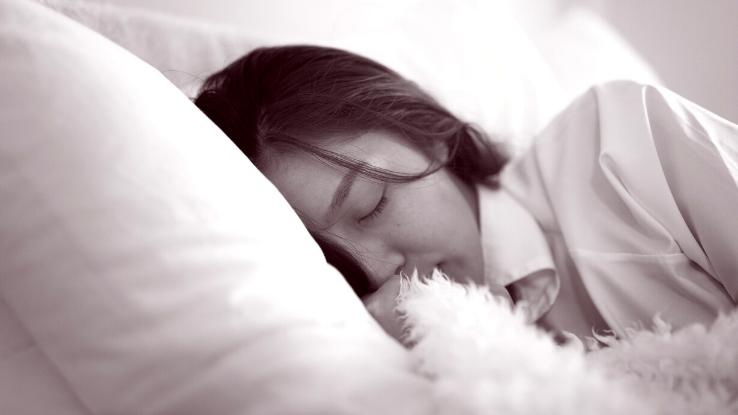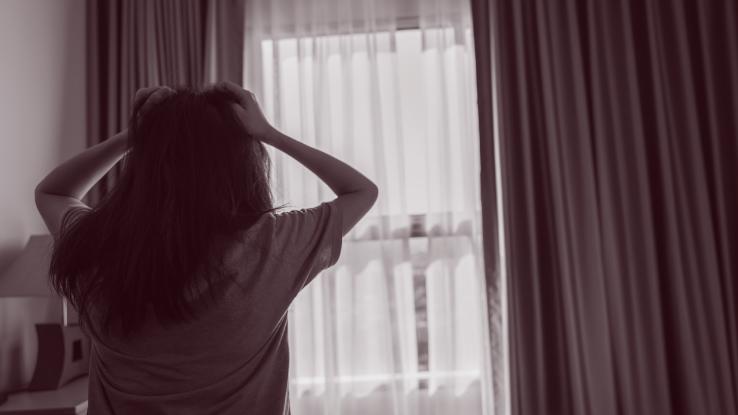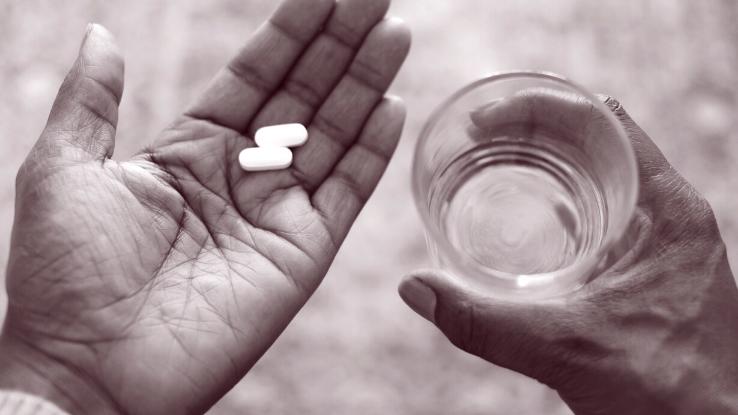
A migraine is an intense headache that can last for hours. Usually, the telltale headache occurs on one side of the head, though it can impact both sides and/or the area behind one’s eye(s). Most often, the headache is marked by a severe pounding or pulsing sensation. As you might imagine, migraines can severely disrupt one’s day.
Are migraine problems a regular occurrence for you? We’ve rounded up 10 home remedies that you can try to help relieve the pain and symptoms associated with migraine headaches.
Note: If problems persist, be sure to seek medical attention as these remedies are not meant to substitute medication or professional treatment.
1. Darkness
The first thing you may want to do when a migraine sets in is turn off all the lights in your room, draw the curtains, and, if possible, wear an eye mask to decrease light stimulation. For many people, migraine attacks are brought on by piercing, blinding light, or continuously flashing lights. Moreover, during an episode one may be sensitive to light. With this in mind, darkness may provide immediate, albeit mild, relief from pain.

2. Silence
The second thing you may want to do is to turn off all auditory stimulation and sounds. Earplugs can be handy in this situation, especially if there are aspects of your environment you can’t control. Just like piercing light, loud noises are one of the most common triggers for migraine headaches.
3. Ice
Wrapping the affected part of one’s skull in ice wraps — which are commonly sold in pharmacies — or homemade cold compresses may drastically decrease the throbbing and pain. The same effects can also be achieved by wrapping some ice in a towel and placing it behind the head and neck while applying pressure to the throbbing site.
4. Sleep
Some people like to manage migraine episodes by “sleeping them off.” While it’s difficult to do so during the attack itself, it may help to relax and fall asleep once the pain has been managed. Most likely, the affected individual is already curled up in bed — in a dark room, with minimal sensory stimulations — so drifting off to sleep eventually comes naturally.
It’s important to note that irregular sleep cycles — or cycles punctuated by jet lag, oversleeping, too little sleep, or frequent napping — are also significant culprits of migraine attacks. While the average person needs eight hours of sleep, some people may find they function the best with six hours or less; each individual’s sleep habits and needs vary and may hinge upon age or activity level. Regardless, it’s important to find out the amount of sleep that’s optimal for you. Once you find a solid sleep schedule, stick to it.
5. Massages
If you have ever had a headache or migraine before you may have tried to relieve the pain by gently massaging the affected area of the skull. If possible, having a friend or family member massage your skull while you try and relax is optimal. Sometimes, deep massages along the neck and shoulders, in addition to a head massage, can further alleviate the discomfort associated with a migraine headache.
6. Relax
An accumulation of anxiety and stress contributes to many health concerns — and both of these factors can trigger migraines. Find ways to incorporate small, de-stressing methods into your routine, from exercising and stretching to penciling in times with friends or watching something that brings you joy.
During a migraine episode, try to relax by taking deep breaths. Although it can be difficult, controlling one’s breathing can make painful moments much more manageable.
7. Over-the-Counter (OTC) Medication
Many types of OTC pain relievers are highly effective for migraine relief. For example, pain relievers, such as non-steroidal anti-inflammatory drugs (NSAIDs), like ibuprofen (Advil, Motrin) or acetaminophen (Tylenol), can help relieve mild migraines.

Other combination drugs target migraine symptoms and include concoctions of caffeine, anti-nausea medications, or triptan derivatives. However, be sure to consult with a doctor first and follow all the instructions when taking OTC medications since an excessive intake can cause other medical complications. In the worst case, frequent use of OTC pain relievers can also cause headaches.
8. Diet
Some foods, such as processed and packaged foods, can serve as migraine initiators. Overly salty foods or items that contain artificial sweeteners, preservatives, and/or too much caffeine can also trigger migraines. The same goes for alcoholic drinks, such as beer and wine. While it may be difficult to completely avoid your favorite foods, consuming these foods in moderation can at least help you avoid migraine episodes.
9. Keep a Record
Did you have a migraine attack yesterday? If so, be sure to record it as soon as possible, as well as what you were doing a few hours beforehand. Keeping a detailed record of each migraine episode can help you identify stimulants, events, or habits that may have triggered the attack. With this knowledge on hand, you may be able to avoid future migraine episodes altogether by mitigating those triggers.
Moreover, if your attacks are severe with a high recurrence rate, recording the details of your episodes will also help your healthcare provider determine the most effective way to help you manage your migraine headaches.
10. Maintain a Healthy, Rested Lifestyle
To sum everything up, maintaining a healthy lifestyle and sleep schedule are the best ways to prevent migraine episodes. Not only will your immune system become more robust, but your body will also be better prepared for future migraines. Additionally, exercising has been shown to decrease the frequency of migraines due to its relaxing aftereffect.
Resource Links:
- “The Use of Complementary and Alternative Medicine in Patients with Migraine” via Archives of Neuropsychiatry, U.S. National Library of Medicine
- “Herbal therapy in migraine” via Neurological Sciences
- “Evidence-Based Treatments for Adults with Migraine” via Hindawi, U.S. National Library of Medicine
- “The diagnosis and treatment of chronic migraine” via Therapeutic Advances in Chronic Disease | Sage, U.S. National Library of Medicine
- “Herbal treatments for migraine: A systematic review of randomized-controlled studies” via Phytotherapy Research, Wiley Online Library





